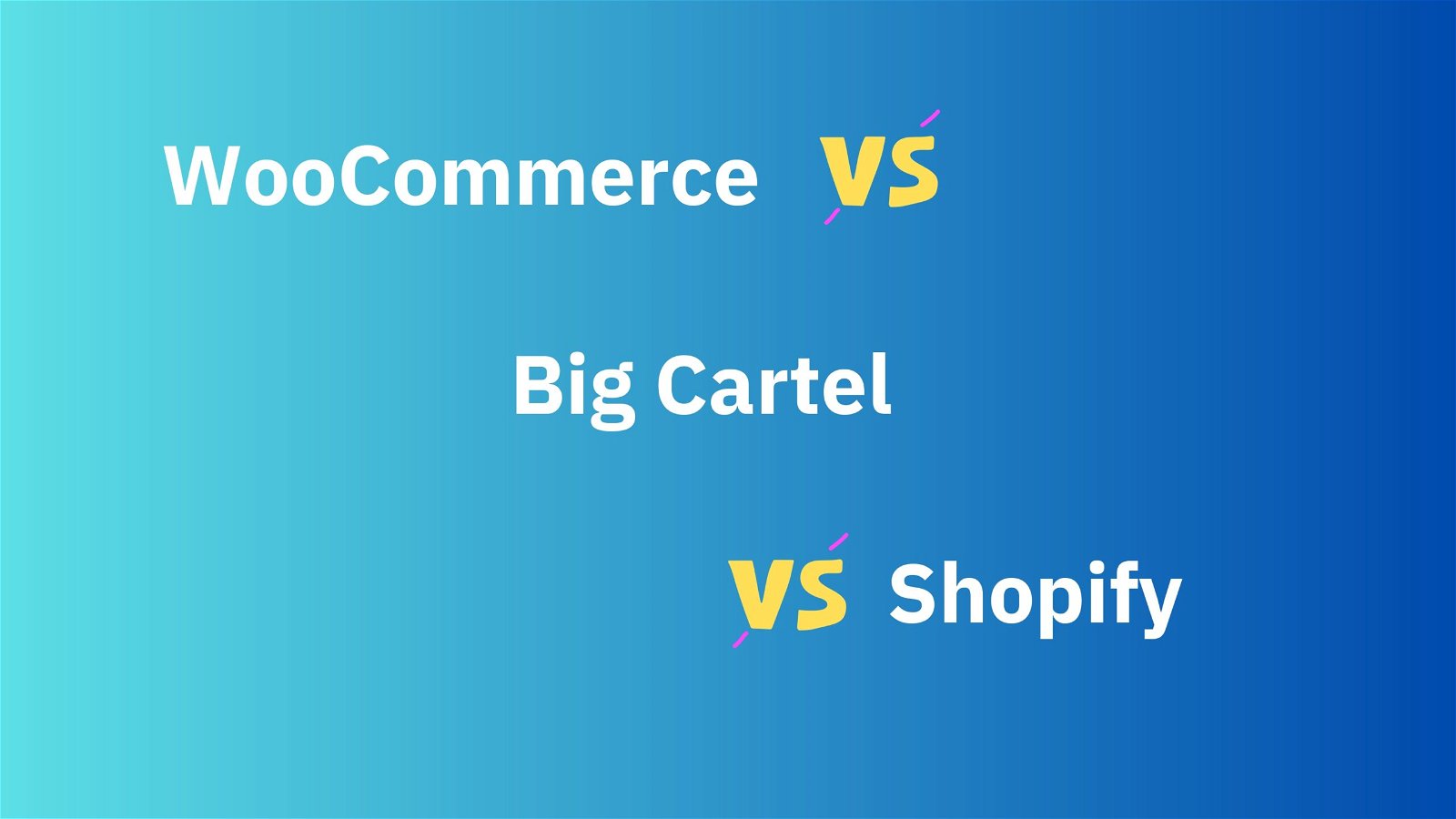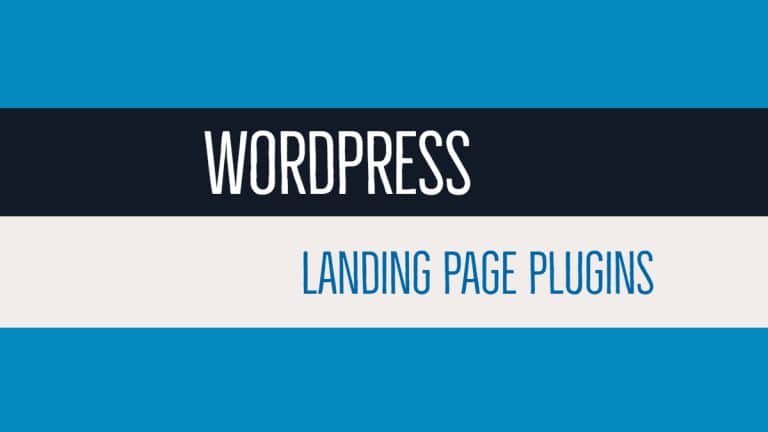For those venturing into the realm of e-commerce, it’s crucial to grasp the distinctions among major platforms, as their selection significantly influences business success. To aid in this decision-making process, I’ve thoroughly compared three prominent e-commerce platforms—WooCommerce, Big Cartel, and Shopify. This comprehensive analysis aims to assist you in selecting the most suitable option for your business needs.
Table of Contents
ToggleWooCommerce
WooCommerce is a versatile e-commerce plugin designed for WordPress, one of the most popular content management systems. Developed by Automattic, WooCommerce empowers users to transform their WordPress websites into fully functional online stores with ease. It offers a range of features for managing products, inventory, and orders, along with extensive customization options through themes and plugins. With support for various payment gateways and a large community, WooCommerce is a preferred choice for businesses seeking a robust and flexible e-commerce solution that integrates seamlessly with their WordPress websites.
Big Cartel
Big Cartel is a straightforward e-commerce platform catering to independent artists, makers, and small businesses. Known for its simplicity, Big Cartel enables users to set up online stores quickly and easily, making it an ideal choice for those with uncomplicated product offerings. The platform is designed to handle smaller inventories, making it accessible to creative entrepreneurs and hobbyists. With a user-friendly interface, basic customization options, and support for popular payment gateways like PayPal and Stripe, Big Cartel provides a hassle-free solution for individuals and small businesses looking to establish an online presence without the complexities of larger e-commerce platforms.
Shopify
Shopify is a leading e-commerce platform that empowers businesses to create and manage online stores efficiently. Founded in 2006, Shopify has gained widespread popularity for its user-friendly interface and comprehensive set of features. It offers a variety of customizable templates, facilitating the creation of visually appealing and professional-looking online storefronts. Shopify covers essential e-commerce functionalities such as inventory management, order processing, and customer engagement tools. The platform also includes a secure and integrated payment system called Shopify Payments, though it supports various third-party payment gateways.
WooCommerce vs Big Cartel vs Shopify
| Feature | WooCommerce | Big Cartel | Shopify |
|---|---|---|---|
| Ease of Use | Moderate (WordPress-based) | Very Easy | Very Easy |
| Customization | Highly customizable with a wide range of themes and plugins | Limited customization options | Customizable with themes and apps |
| Scalability | Scalable, but performance may depend on hosting quality | Suitable for small businesses, less scalable | Highly scalable, suitable for various business sizes |
| Cost | Free (plugin) + hosting, domain, premium themes/plugins | Free (basic plan) + premium plans available | Monthly subscription + transaction fees (basic plans) |
| Payment Options | Wide range of payment gateways | Limited to PayPal and Stripe | Own payment gateway (Shopify Payments) + third-party gateways |
| Features | Extensive due to integration with WordPress, supports various product types | Basic features, suitable for small businesses | Rich set of features, including inventory management, marketing tools, and more |
| Hosting | Requires separate hosting (costs vary) | Hosted solution | Hosted solution with included hosting in the subscription |
| Support | Community support (WordPress) | Email support (premium plans), limited compared to others | 24/7 customer support |
| Target Audience | Varied, suitable for businesses of all sizes | Small businesses with simple needs | A broad range, suitable for small to enterprise-level businesses |
| Mobile Responsiveness | Responsive with themes | Mobile-friendly | Mobile-friendly |
WooCommerce, Big Cartel, and Shopify are three popular e-commerce platforms, each with its strengths and weaknesses. Here’s a detailed comparison of these platforms based on various factors:
1. Ease of Use
WooCommerce: As a WordPress plugin, WooCommerce is easy to install for WordPress users. It might be a bit more complex for beginners who are not familiar with WordPress.
Big Cartel: Known for its simplicity, Big Cartel is easy to set up and use. It’s geared towards small businesses with straightforward needs.
Shopify: Shopify is known for its user-friendly interface and intuitive setup. It’s designed to cater to users with varying levels of technical expertise.
2. Customization
WooCommerce: Offers extensive customization options due to its integration with WordPress. Users can leverage a wide range of themes and plugins to modify the look and functionality of their online store.
Big Cartel: Customization options are more limited compared to WooCommerce and Shopify. It’s suitable for those who prefer a simple and clean storefront without advanced features.
Shopify: Provides a good balance between ease of use and customization. Users can choose from a variety of themes and can also make use of the Shopify app store for additional features.
3. Scalability
WooCommerce: Can be highly scalable, but performance may depend on the quality of hosting. Larger stores may require more resources.
Big Cartel: More suitable for smaller businesses with fewer products. It may not be the best choice for scaling up to a large enterprise-level store.
Shopify: Known for its scalability. It can handle both small and large stores effectively. Shopify Plus is specifically designed for high-volume businesses.
4. Cost
WooCommerce: The plugin itself is free, but you may incur costs for hosting, domain, and premium themes/plugins. Costs can vary based on your needs.
Big Cartel: Offers free plans for small stores with limited products. Premium plans are available with additional features at a higher cost.
Shopify: Paid platform with monthly subscription plans. Costs include hosting, security, and support. There are also transaction fees for using external payment gateways in the basic plans.
5. Payment Options
WooCommerce: Supports a wide range of payment gateways, and you have the flexibility to choose the one that suits your needs.
Big Cartel: Integrates with PayPal and Stripe for payments. Additional gateways may be available on premium plans.
Shopify: Offers its payment gateway (Shopify Payments) along with support for third-party gateways. Transaction fees are waived if you use Shopify Payments.
6. Features
WooCommerce: Extensive features due to its integration with WordPress. It can handle various types of products, and the plugin ecosystem allows for additional functionalities.
Big Cartel: Basic features suitable for small businesses. Lacks some advanced e-commerce features found in WooCommerce and Shopify.
Shopify: Rich features set out of the box, including inventory management, marketing tools, and abandoned cart recovery. Additional features can be added through the app store.
Which Is The Best In Comparison Of WooCommerce vs Big Cartel vs Shopify?
The choice between WooCommerce, Big Cartel, and Shopify ultimately depends on specific business needs and preferences. WooCommerce, as a WordPress plugin, offers extensive customization and scalability, making it suitable for a wide range of businesses. Big Cartel, with its simplicity, is ideal for smaller ventures and creative entrepreneurs. Shopify stands out with its user-friendly interface, rich feature set, and scalability, making it a top choice for businesses of various sizes.
Ultimately, the best platform hinges on factors such as the level of customization required, the size of the business, and the desired balance between ease of use and advanced features.
Final Thought On WooCommerce vs Big Cartel vs Shopify
In conclusion, the best e-commerce platform among WooCommerce, Big Cartel, and Shopify depends on your unique business requirements and priorities. WooCommerce shines for its flexibility, especially for those familiar with WordPress. Big Cartel offers simplicity tailored for smaller ventures and creative endeavors. Meanwhile, Shopify stands out as a versatile and user-friendly option suitable for businesses of diverse scales. Assessing factors like customization needs, business size, and feature preferences will guide you toward the platform that aligns best with your goals and ensures a successful online retail presence.
Interesting Reads:
Kajabi vs WordPress vs Teachable








